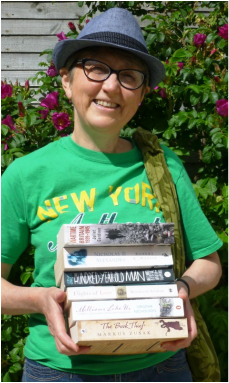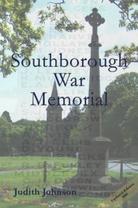
A friend of mine gets up early every day to read the papers in depth. She likes to read a British broadsheet, a German one, and an American one, taking in the different points of view in order to gain a textured understanding of current affairs. I listen to BBC Radio 4's Today programme before work, and skim the BBC website for news, but I prefer to wait for an in-depth book on most subjects.
On the evening of the recent general election I was chatting with the young daughter of an acquaintance, who told me that one of her teachers was descended from a suffragette, and had talked to her pupils about her grandmother's struggles. I asked the girl's mother, had she voted yet? She replied that she hadn't, that she might pop in on her way home, but that the trouble was she didn't really know anything about politics, and didn't know who to vote for. I heard similar views on the radio leading up to the election from others who felt it was nothing to do with them.
One of the books I've read this year was Martin Meredith's The State of Africa. I wanted to make up for my woeful ignorance of modern African history. It's a really accessible work - although most of it made deeply grim reading about Africa's corrupt leaders and the immense human suffering resulting from their self-will run riot (bar the shining exception of Nelson Mandela). If this book doesn't make you feel grateful for living in a liberal democracy (with all its faults), I don't know what would. It caused, for me, a fundamental shift in my thinking, and it confirmed again the truth of the old adage that power corrupts, and absolute power corrupts absolutely.
So what other areas of significant ignorance have I begun to remedy this year? I've benefited from the efforts of William Dalrymple (The Last Mughal illuminated some of the back story of my Indian great-great-grandmother), Benjamin Franklin's Autobiography (background to American democracy, and Jackie Kay (Red Dust Road told me something about being adopted, and having a mixed-race ancestry). Of course, good fiction too helps me find a deeper understanding of our human condition, and Chimamanda Ngozi Adichie's Half of a Yellow Sun met both requirements superbly (a beautifully told story with wonderful characters and an introduction to modern Nigerian history).
My list of reading goals this year includes a study of the EEC. I learnt something about the EEC when I did my French A-Level (my kindly Francophile teacher told us how deeply it had depressed him researching the subject, when he saw how the French had manipulated the EEC), but ever since I have tended to slide away from reading most stuff on the subject, seeing it as dull, dry and bureaucratic. I intend, especially with a referendum looming, to make an effort to remedy my shameful ignorance. Any recommendations would be very welcome.
I love good fiction, so I sometimes have to tear myself away from the information smorgasbord! I note, for instance, that I've read thirteen non-fiction books this year and only six fiction, so I'm aiming to balance that up before the end of the year.
My 91 year old mother has been an avid reader all her life, and read under the bedclothes with a torch when a child (as I did!). She still has a discerning eye. My husband, a writer himself, has recently been reading The Brain That Changes Itself by Norman Doidge, passed on to him by Mum, who said of it, "It was absolutely fascinating, I couldn't put it down". She did, however, abandon Umberto Eco's The Name of the Rose after several chapters, describing it as: "boring".
We hesitated about giving her Martin's first book, a supernatural thriller, Niedermayer & Hart, to read, but she lapped it up.
"It didn't give you nightmares then, Mum?"
"Oh no, darling, I stayed up all night reading it."
An author's never sure who will like his story-telling, so Martin was even more delighted when, having asked for a copy of his 2nd book, Roadrage, Mum gave us her feedback on our next visit:
"Oh darling, I must tell you, that book's a cracker! Very well-written, I loved it!"
Mum still wants to be reading interesting, informative books, although she still entertains the odd bit of romantic fiction for light relief. Last time we visited she complained she'd run out of good reading material, so I nipped out to the local Pepenbury charity shop this morning and bought her six lovely fat ones!
I asked the nice young man serving me if he read much?
"Oh yes!"
"What do you like to read?"
"Oh, existential literature, you know - Albert Camus, Franz Kafka, that kind of thing. Melancholy stuff."
"Don't worry", I said, "that'll probably wear off after you're 40!"

 RSS Feed
RSS Feed
